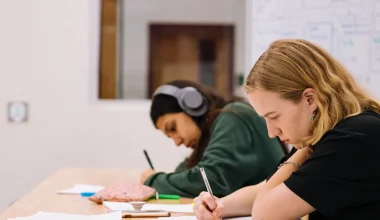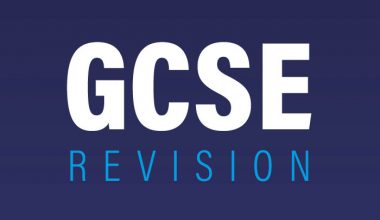GCSE history can be a wonderful experience throughout time, filled with intriguing events, influential figures, and ways that have helped put the world in order.
However, following a planned course or information can seem difficult to some extent. This guide will be an eye-opener, taking you through the steps for the GCSE History revision.
We will cover all the essential techniques, from understanding the concept of GCSE history to producing revision data that is easy to understand.
At the end of this guide, you will be well equipped with strategies, skills, and knowledge to confidently attempt and face the GCSE History exams.
Table of contents
What is the GCSE History Syllabus
To revise effectively for GCSE History, it is crucial to understand the syllabus thoroughly. The GCSE History syllabus varies depending on the exam board, so it is important to check which exam board your school uses. You can find this information on your school’s website or by asking your teacher.
Once you know which exam board you are studying for, you can access the syllabus online. The syllabus will outline the topics you need to study, the skills you need to develop, and the types of questions you can expect to see on the exam.
The GCSE History syllabus is divided into different topics, and each topic has a set of subtopics. For example, the AQA GCSE History syllabus covers the following topics:
- America, 1920-1973: Opportunity and Inequality
- Conflict and Tension, 1918-1939
- Britain: Health and the People, c1000 to the Present Day
- Norman England, c1066-c1100
- Elizabethan England, c1568-1603
Within each topic, there are subtopics that you need to study in detail. For example, under the Conflict and Tension topic, you will need to study the following subtopics:
- The Treaty of Versailles
- League of Nations
- Hitler’s foreign policy
- The Origins of the Cold War
It is important to familiarize yourself with the subtopics and understand the key events, people, and concepts associated with each one.
In addition to studying the content, it is important to develop the skills required to succeed in the exam. These skills include analyzing sources, evaluating interpretations, and constructing coherent arguments. Your syllabus will outline the skills you need to develop and provide guidance on how to do so.
By understanding the GCSE History syllabus, you will be able to focus your revision on the topics and skills that are most important. This will help you to feel more confident and prepared for the exam.
Creating a Revision Timetable
When it comes to revising for GCSE History, a revision timetable can be a valuable tool for managing your time and ensuring you cover all the necessary topics. Here are some tips to help you create an effective revision timetable:
Balancing Subjects
When creating your revision timetable, it’s important to balance your time between all your subjects. Make sure you allocate enough time for each subject based on how much content you need to cover and how confident you are with the material. It’s also a good idea to prioritize the subjects you find most challenging so you can give them more attention.
Allocating Time Effectively
To make the most of your revision time, it’s important to allocate it effectively. Here are some tips to help you do that:
- Break your revision sessions into manageable chunks, such as 30- or 60-minute blocks, with short breaks in between.
- Use active revision techniques, such as creating mind maps, summarizing notes, or teaching the material to someone else.
- Schedule your revision sessions at times when you’re most alert and focused, such as in the morning or early afternoon.
- Make sure you include time for rest, as well as other commitments, such as sports or hobbies.
Through this, you can create a revision timetable that helps you manage your time effectively and revise for GCSE History in a way that suits your learning style and schedule.
Effective Note-Taking Techniques
When it comes to revising for GCSE History, taking effective notes is essential. Here are two note-taking techniques that can help you revise more efficiently.
Visual Aids
Visual aids can help you remember information more easily. You can create diagrams, mind maps, or flowcharts to help you visualize key concepts and their relationships. This technique can be particularly helpful for remembering timelines, cause-and-effect relationships, and historical events.
For example, if you’re studying the causes of World War I, you could create a flowchart that outlines the main factors that led to the war. You could use arrows to show how one factor led to another, and add brief notes to explain each factor.
Summarizing Information
Another effective note-taking technique is summarizing information. This involves condensing information into a shorter, more manageable form. Summarizing can help you identify the most important points and remember them more easily.
One way to summarize information is to create bullet points. You can use bullet points to list the key points of a topic and then add more detailed notes under each point. This technique can be particularly helpful for remembering historical events, dates, and names.
Another way to summarize information is to create a table. You can use a table to compare and contrast different ideas, events, or people. For example, if you’re studying the impact of the Industrial Revolution, you could create a table that compares the social, economic, and political changes that occurred during this period.
Remember, effective note-taking is all about finding a technique that works best for you. Experiment with different methods and find the ones that help you remember information more easily.
Utilizing Past Papers
Past papers are an essential resource for improving your GCSE History exam technique and subject knowledge. Here are some tips on how to make the most of them.
Identifying Patterns
One of the most significant benefits of using past papers is that they allow you to identify patterns in the types of questions that are commonly asked. This can help you focus your revision on areas that are likely to come up in the exam.
To identify patterns, you should look for common themes, such as questions about specific historical events or periods. You may also notice recurring question formats, such as source-based questions or essay questions. By identifying these patterns, you can tailor your revision to focus on the areas that are most likely to be tested.
Practicing Time Management
Another benefit of using past papers is that they allow you to practice time management. GCSE History exams are timed, so it’s essential to be able to manage your time effectively to ensure that you can answer all the questions in the allotted time.
To practice time management, you should time yourself as you answer past paper questions. This will give you a sense of how long you need to spend on each question to ensure that you complete the exam within the time limit. You can also use past papers to practice your writing speed and ensure that you can write legibly and coherently under pressure.
Reviewing and Memorizing
When revising for GCSE History, reviewing and memorizing the information is crucial. In this section, we’ll cover two effective techniques for retaining information: Active Recall and Spaced Repetition.
Active Recall
Active Recall is the process of recalling information from memory without the aid of notes or textbooks. This technique is effective because it forces you to actively engage with the material and retrieve information from your memory.
To use Active Recall, try the following:
- Cover up your notes and try to recall as much information as you can about a specific topic or event.
- Use flashcards to quiz yourself on key dates, people, and events.
- Write out an essay or answer questions without referring to your notes.
By using Active Recall, you can identify gaps in your knowledge and focus your revision on the areas that need improvement.
Spaced Repetition
Spaced Repetition is a method of reviewing information at increasing intervals over time. This technique is based on the idea that spacing out your revision sessions helps to strengthen your long-term memory.
To use Spaced Repetition, try the following:
- Create a revision schedule that includes regular review sessions for each topic.
- Use flashcards or online tools like Quizlet to review information at increasing intervals.
- Please focus on the areas that you find most difficult and review them more frequently.
Seeking Help and Resources
If you’re struggling with revising for your GCSE History exam, don’t worry; there are many resources available to help you. In this section, we’ll discuss some of the best resources to seek help from.
Online Platforms
Online platforms are a great way to access a variety of resources to help you revise for your GCSE History exam. Some of the best online platforms include:
- BBC Bitesize: This platform offers resources, including videos, quizzes, and revision notes, to help you revise for your GCSE History exam.
- Seneca Learning: This platform offers interactive courses and quizzes to help you revise for your GCSE History exam.
- Quizlet: This platform offers flashcards, quizzes, and other study tools to help you revise for your GCSE History exam.
Study Groups
Joining a study group can be a great way to revise for your GCSE History exam. Here are some tips for finding and joining a study group:
- Ask your classmates if they’re interested in forming a study group.
- Check with your school to see if they offer any study groups or revision sessions.
- Look for online study groups on platforms like Facebook or Reddit.
Tutoring
If you’re really struggling with revising for your GCSE History exam, you may want to consider getting a tutor. Here are some tips for finding a tutor:
- Ask your teacher if they can recommend a tutor.
- Look for tutors online on platforms like Tutorful or Superprof.
- Consider asking a family member or friend who is knowledgeable in history to tutor you.
FAQS
It’s never too early to start revising for GCSEs, but it’s generally recommended to start in the summer before your exams. This will give you plenty of time to cover all of the material and get into a good revision routine.
There are many different ways to revise GCSE history, but some of the most effective methods include creating flashcards, making mind maps and timelines, reading textbooks, practising past papers, and studying with friends or classmates.
The ultimate guide to revising for GCSE history is to find a method that works for you and stick with it. There is no one-size-fits-all approach to revision, so experiment until you find something that you enjoy, and that helps you to learn.
Revising for a GCSE history exam in one day is not ideal, but it is possible if you are organized and efficient. Also, remember that you cannot cram all of the information into your head in one day. The best way to revise for a history exam is to start early and to revise regularly.
Conclusion
GCSE History revision can be challenging, but with the right approach and information, it can be an interesting and engaging experience that opens you to a greater understanding of the world. It doesn’t have to be a solitary walk through big textbooks.
Always keep in mind that being successful comes with consistency, managing resources, and active learning. Keep reading, get a partner to try out your quiz with, and ask questions from supervisors or teachers.
Recommendations
- What Happens if My 17-Year-Old Child Leaves Education in the UK?
- Guide to GCSE Exam Boards: Popularity, Pass Rates, and More
- Do University Students Get Free Eye Tests?
- What is an AS Level? Everything You Need To Know About The AS Levels
- Do University Students Pay For The Dentist?
References
- bbc.co.uk/-How to Revise for GCSE History
- global.oup.com/-How to Revise for GCSE History
- hoddereducation.co.uk/-How to Revise for History GCSE
- amazon.co.uk/New GCSE History Revision Guide/






